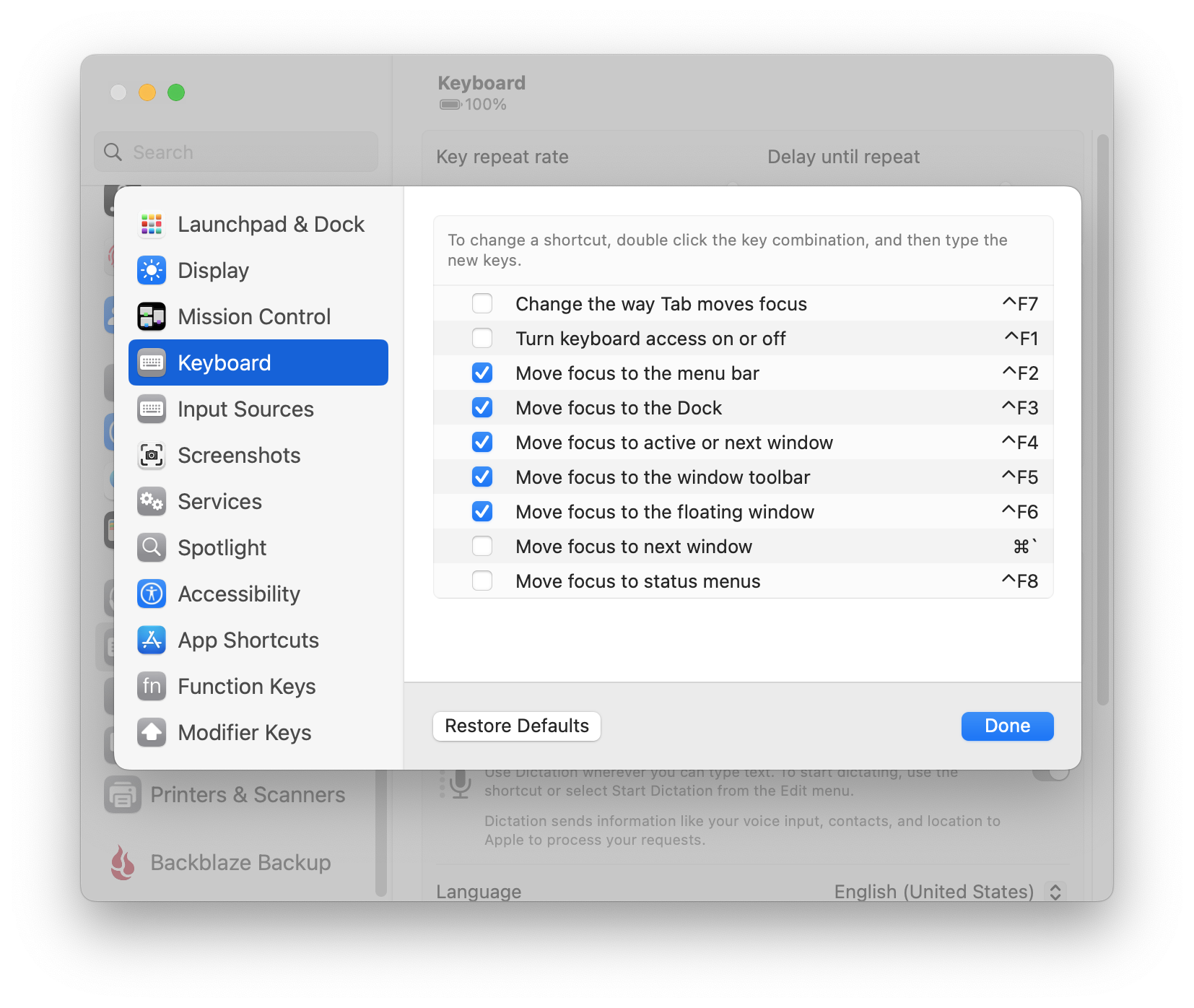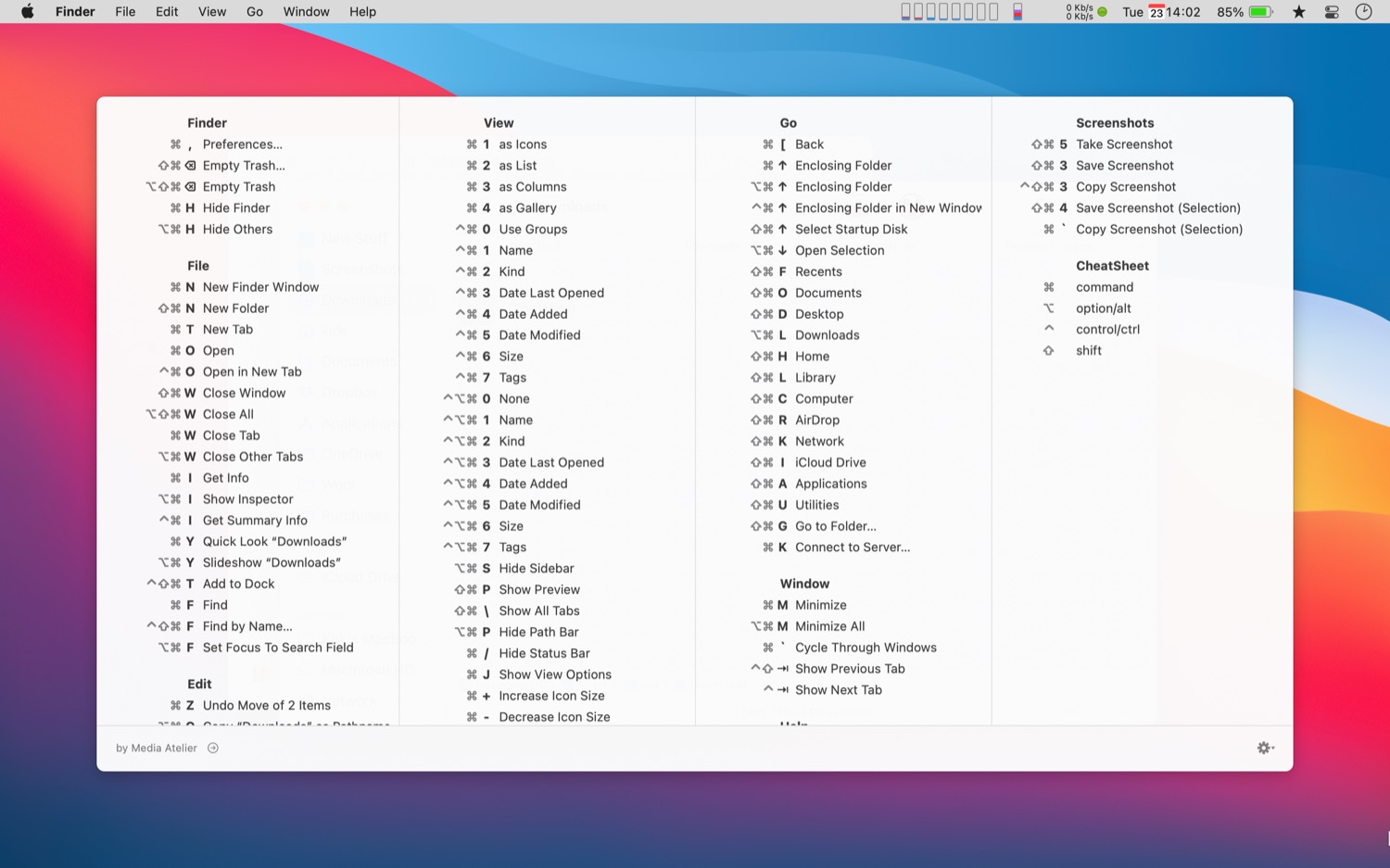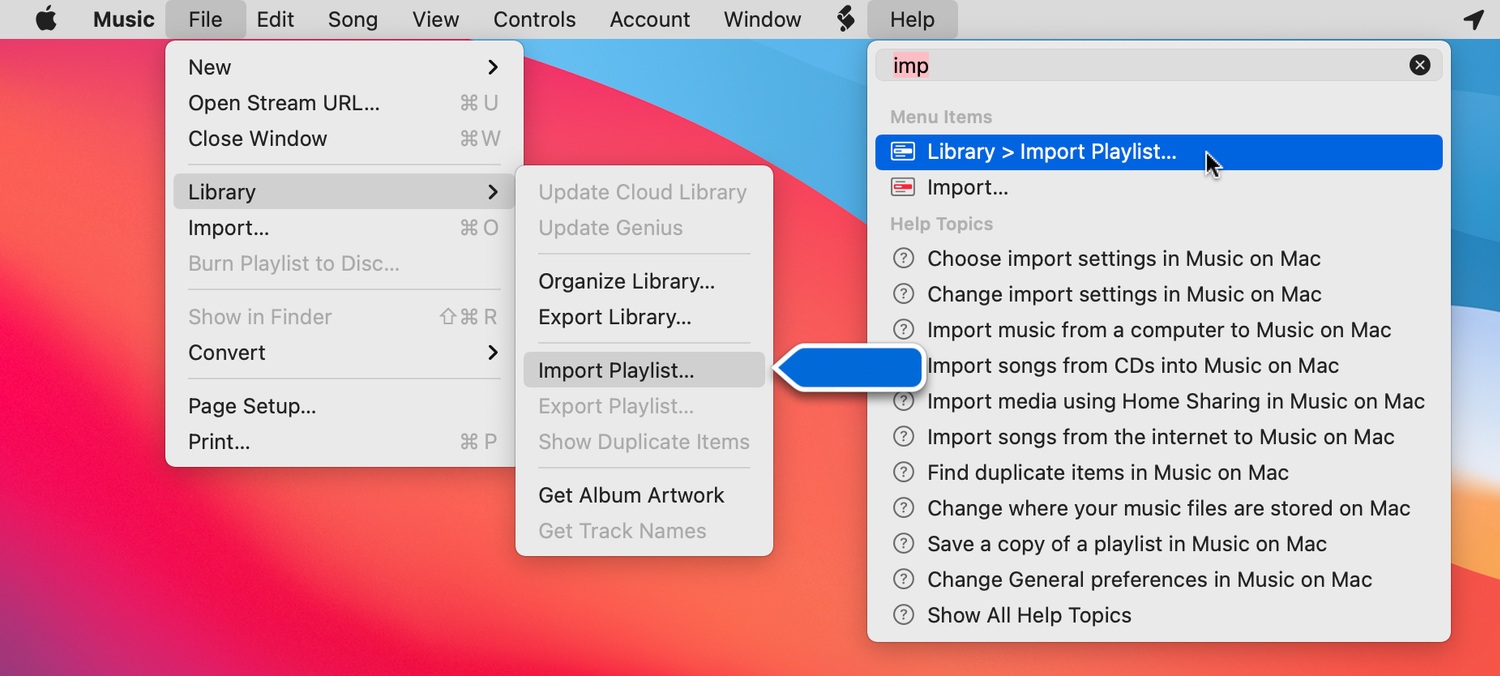Navigate the Menu Bar, Dock, and More, Using Your Mac’s Keyboard
Posted on
by
Craig Grannell and Kirk McElhearn

Much of your work on a Mac involves using a mouse or trackpad to move a cursor and click on things. But keeping your hands on the keyboard can be more efficient.
The Mac offers keyboard shortcuts to aid with this, but many Mac users don’t realize system components primarily designed for cursor interaction can be navigated using the keyboard, too. This article explains how.
Setting navigation keyboard shortcuts
macOS offers options to let you control its interface from the keyboard. To start with, check System Settings > Keyboard, then Keyboard Shortcuts to see which shortcuts are set.

By default, many of these shortcuts use the Control key (signified here by ^). On many Mac keyboards, such as those on laptops, you also need to press the fn key, at the bottom left of the keyboard, to use the function keys (F1, F2, etc.), so these shortcuts may require that you press three keys. If you want to change any of them, click on the keyboard shortcut and press a new one.
Navigate the menu bar with your keyboard
Press Ctrl+F2 to move focus to the menu bar. This selects the Apple menu at the top-left of the display, whether or not you’re in full-screen mode.
To select a different menu, navigate using the left or right arrow keys; you’ll see one of the menus highlighted, like the View menu below.

You can also start typing to immediately jump to a menu: type E to go to the Edit menu, or type W to go to the Window menu.
Navigate macOS menus with your keyboard
When a menu is highlighted, you can use the up and down arrow keys to navigate it, and also the right and left arrow keys, respectively, to enter and leave sub-menus. If you’re navigating a menu, and want to go back to the menu bar, press the right or left arrow key (as long as a menu item with a sub-menu isn’t selected).
This is good for general browsing — getting a feel for an app’s menus — but not for day-to-day work. If an item has a keyboard shortcut, use that to select it. For an item lacking a shortcut, type a few characters to jump to it and hit Return to select. (For often-used items lacking a shortcut, consider adding one in System Preferences.)
Quickly locate menu items and keyboard shortcuts
If you’re a Mac newcomer or have just installed a new app, it’s handy to get an overview of available shortcuts. CheatSheet provides such a thing in a user-friendly manner.
Download the app and follow the instructions to allow CheatSheet to control your Mac. Now, whenever you hold the Command key for a couple of seconds, a window will pop-up, listing shortcuts for the current app. Click the gear icon for a settings menu, where you can adjust the delay and print the current shortcuts list, if you want.

For assistance in finding a menu item, use the Help menu’s search field. This is activated with Shift+Command+/ (Command+?). Start typing and the first results will be menu items, which you can navigate to using the down arrow key. Selecting one shows its location within the app’s menus, as well as any available help topics. You can press Return to activate the selected menu item.

Navigate dialog boxes with your keyboard
When a Save dialog box appears, it’s tempting to click things with the mouse, but you don’t need to. Return confirms the default selection, but to avoid mistakes, get into the habit of using shortcuts that trigger specific buttons: Command+S to save, Escape to cancel, and Command+Delete to delete.
Navigate the Dock from the keyboard
To send focus to the Dock, use Ctrl+F3. The first time you do so, the Finder will be selected by default. Subsequently, the first app selected will be whatever you most recently keyboard navigated to.
As with the menu bar, you can use the arrow keys to move through the dock, and open and close Dock item menus; press Return to select an item. Note that in the right-hand side of the Dock, you may need to press Escape to close an open stack, before navigating to a different Dock item.
How can I learn more?
 Each week on the Intego Mac Podcast, Intego’s Mac security experts discuss the latest Apple news, security and privacy stories, and offer practical advice on getting the most out of your Apple devices. Be sure to follow the podcast to make sure you don’t miss any episodes.
Each week on the Intego Mac Podcast, Intego’s Mac security experts discuss the latest Apple news, security and privacy stories, and offer practical advice on getting the most out of your Apple devices. Be sure to follow the podcast to make sure you don’t miss any episodes.
You can also subscribe to our e-mail newsletter and keep an eye here on Mac Security Blog for the latest Apple security and privacy news. And don’t forget to follow Intego on your favorite social media channels: Facebook, Instagram, Twitter, and YouTube.